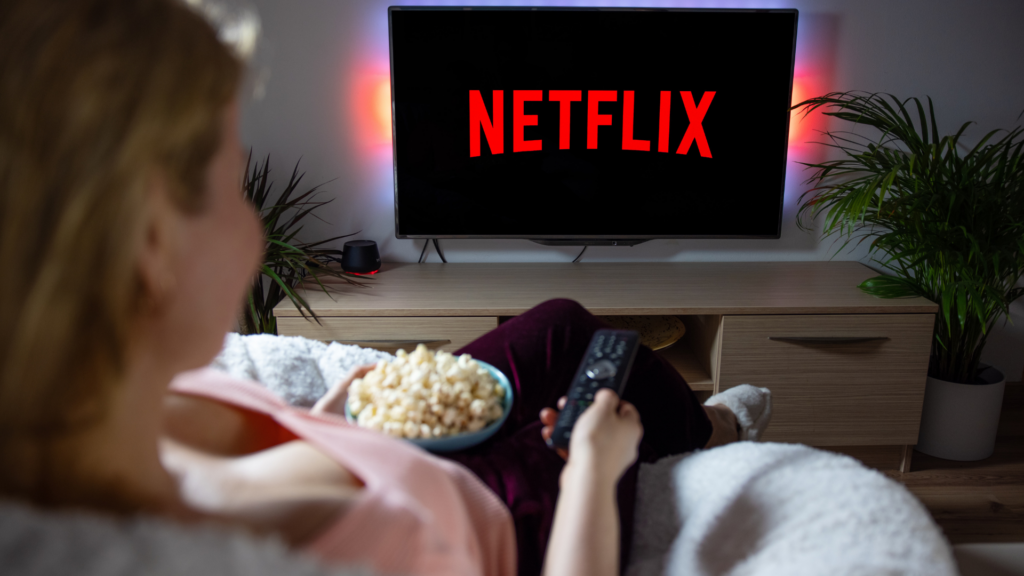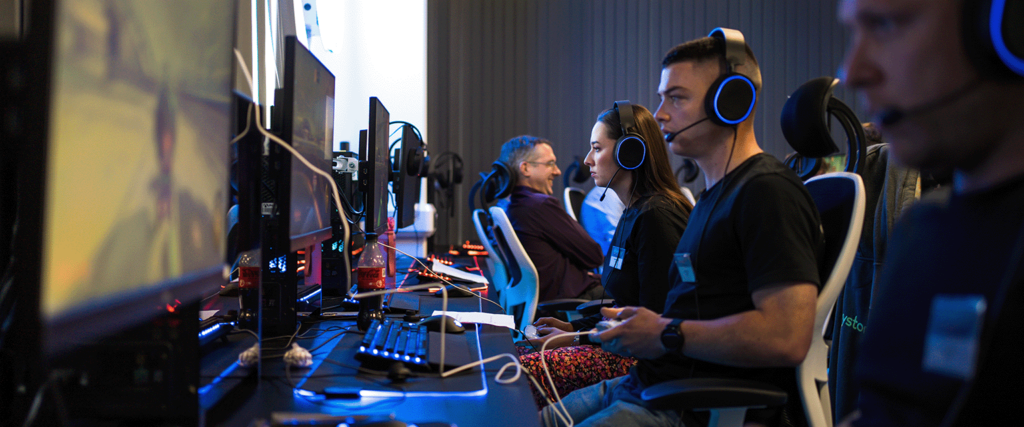
Insights
What speeds do I need for streaming?
In simple terms, streaming is a way of watching video or listening to audio content without having to physically download the files. Streaming refers to the continuous transmission of these audio or video files from a server to a client, and is far more efficient than having to download and store large media files, which would take up a great deal of space on a device’s hard drive.
In short – streaming is what happens when we watch video content or listen to podcasts, music and audiobooks on internet-connected devices.

What broadband speeds do I need for streaming films and TV?
Streaming services have given people the power to watch whatever they want, whenever they want, but there’s one requirement – a strong enough internet connection.
The recommended minimum speed for streaming content online ranges from 1.5Mbps to 25Mbps, but the required speed for your chosen content will also depend on which platform you’re using and the level of definition you want to stream in.
For example, you’ll be able to stream in standard definition (SD) on basic internet packages, but high definition (HD) and 4K ultra HD will place much more of a demand on your broadband.
In terms of numbers, this works out as needing around 3Mbps to stream in SD, at least 5Mbps for HD, and 25Mbps for ultra HD streaming.
However, it’s important to remember that these are all minimum recommended speeds, and they don’t take into account the fact that other devices are likely to be using the internet connection at the same time. If you live in a household with multiple people who are all using internet-connected devices, you’ll need more bandwidth than just the minimum recommended amount. As a general rule, you’ll want to opt for an internet package that provides an average download speed of twice the amount you’ll need to stream.
Unsure what sort of broadband speed you’ll need for your favourite platform? We’ve broken down some of the most popular options for you.

The broadband speeds required for different platforms
Here are the minimum speeds set out by some of the most popular streaming platforms if you want to stream in standard definition, high definition or ultra HD.
| Streaming Service | SD | HD | 4K/UHD |
| Netflix | 3Mbps | 5Mbps | 15Mbps |
| Amazon Prime | 1Mbps | 5Mbps | 25Mbps |
| Youtube | 1.1Mbps | 5Mbps | 20Mbps |
| NOW TV | 2.6Mbps | 12Mbps | – |
| Disney+ | – | 5Mbps | 25Mbps |
| BBC iPlayer | 1.5Mbps | 5Mbps | 24Mbps |

Streaming live events
Hosting a watch party? Perhaps there’s an exciting football game or the Strictly Come Dancing final…if that’s more your thing
In either case, you’ll need a robust broadband speed so you don’t let your guests down.
To stream the event in ultra HD and capture every detail in real-time, you’ll need a minimum of 25Mbps available bandwidth. However, if your family and friends are also connected to the internet on their devices, there’s a chance this could cause the picture to deteriorate, so you’ll want to allow 40-50Mbps to cover all situations.
Learn more about the best way to stream live events

Streaming games
Lag is the bane of many gamers’ lives, costing many a missed shot, over-run corner or unfinished Minecraft build. The actual speed you need for the gaming stream to function properly may depend on the console you’re using. This said, you might be surprised to know that the bare minimum recommended by many console manufacturers is just 3-4 Mbps to connect online and run the most basic games.
However, if you are into high-definition multiplayer games using large worlds or maps, then it’s a different story. Consoles like the Xbox Series X recommend at least 10 Mbps for typical use, but you will likely need more depending on the number of people online in the game. Many gaming sites recommend an unlimited fibre broadband line with upwards of 25 Mbps if you’re gaming alone, or at least 100 Mbps if you live in a busy home with lots of people online, for the best experience using modern consoles.
If you’re a gamer, you’ll find all the info you need in our Gamer’s Guide to Broadband

Streaming Peloton and other gym workouts
There’s nothing quite like the convenience of getting your workout done at home.
There’s been a considerable e-fitness boom in recent years; particularly since the Covid-19 pandemic and rise of home working.
As a result, the fitness industry has introduced a range of ‘smart’ equipment which provides bespoke workouts directly in the comfort of our homes, but the one requirement is, of course, a strong internet connection.
Smart home gym equipment such as Peloton or Tonal cannot be used without internet connectivity, and often require speeds of up to 15 Mbps to run smoothly. Live streaming a fitness class on YouTube could take up to 10 Mbps, whilst even a pre-recorded one could use upwards of 5Mbps. This is why it’s essential to make sure your broadband speed is fit for the challenge before investing in expensive fitness equipment – check out our guide on making sure your internet connection is workout-ready.

Checking your internet speed
If you’re concerned that your broadband connection doesn’t provide the speeds you need to enjoy all of your favourite streaming activities, the first thing you should do is conduct a broadband speed test. This will tell you exactly how fast your current broadband connection is, and will give you an idea of what sort of package you’ll need to change to if your broadband isn’t fast enough.
We’ve created a quick and easy broadband speed test which will give you all the answers you need within a couple of clicks – click here to check your speed now.
The good news is that Jurassic Fibre has a range of ultrafast broadband packages available if you find you need to upgrade or improve your current speed. Explore our packages here.

Streaming on multiple devices
If you have a busy household with multiple devices attempting to stream from one connection, you’ll need a lot more capacity at all times of the day in order for everything to function properly.
The last thing anybody needs is the broadband slowing down to a snail’s pace when everyone is online. To avoid lagging speeds, you’ll want to select a package that can support a multi-device household, ideally in the range of 150-300Mbps.
Here are some of the things you’ll want to consider when choosing the right broadband package for your home.

Dealing with buffering
Buffering refers to the process of downloading a certain amount of data before starting to play the video, in order to ensure a smooth playback. This can mean that your video frequently stops to buffer during playback, which can create a frustrating watching experience.
There are two common reasons for buffering – the first being that your internet connection is too slow to stream your chosen video in real time, and the second being that your router is too slow in sending the video to your internet-connected devices.
If you regularly experience buffering issues while streaming content at home, you may want to consider upgrading your internet speed and/or your router. A fast connection and proper router will be able to stream films and TV programmes without interruption, even in HD or 4K definition.
Solving buffering issues can be as simple as upgrading your internet plan or investing in a new router. This could make a significant difference to your streaming experience and allow you to enjoy seamless, uninterrupted playback as a guarantee every time.
Is it time to make the switch?
If your broadband has been getting in the way of a smooth streaming experience, it might be time to switch to something better.
At Jurassic, we have a range of ultrafast broadband packages available to suit the needs of all households and their streaming habits. With a price promise until 2025, there’s never been a better time to make the switch – speak to the team about how we can offer you the best broadband experience today.
Latest news
A network for the future
Why Jurassic Fibre?


